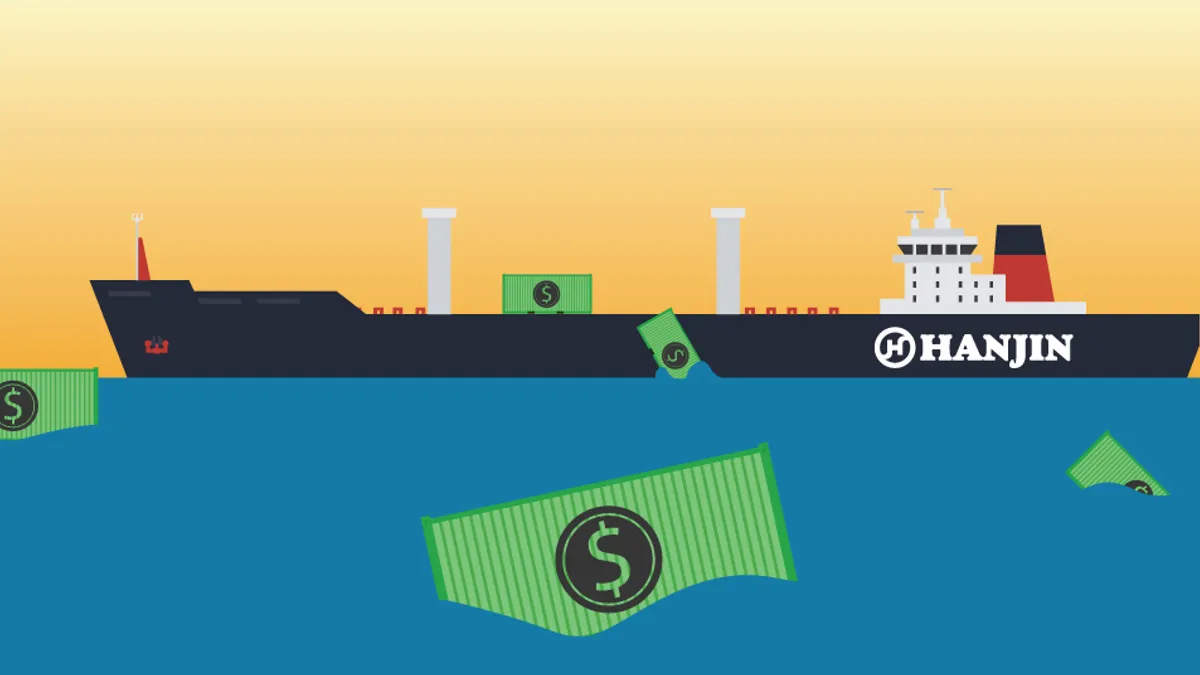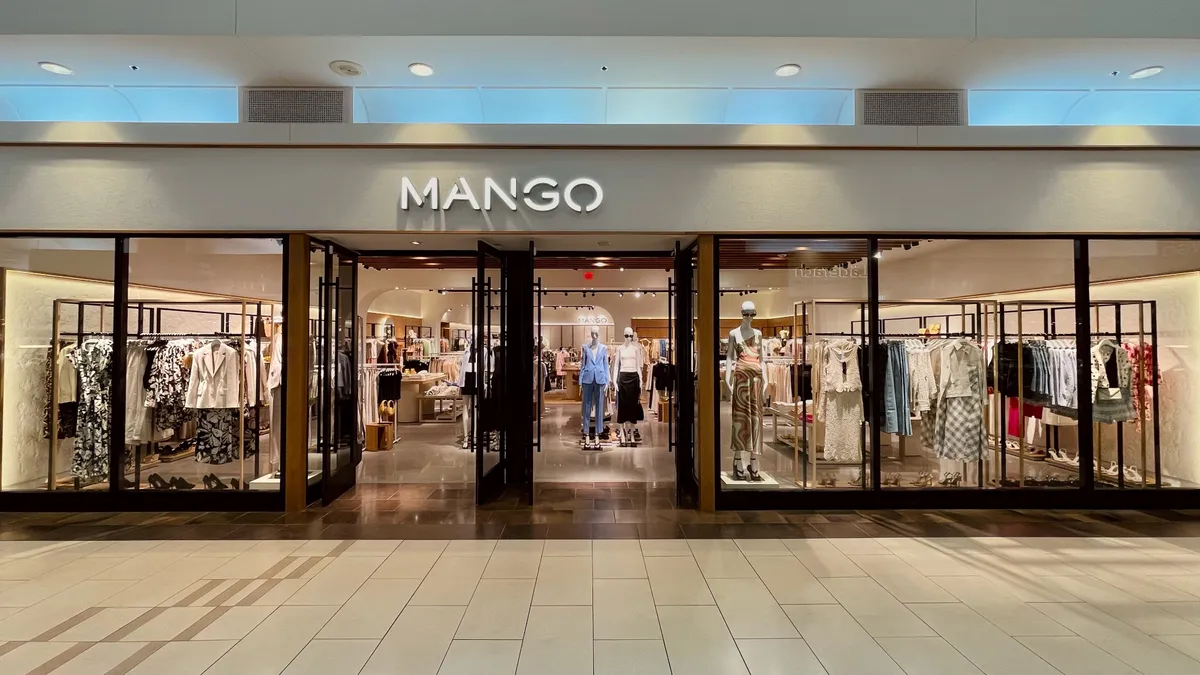Supply chains are constantly changing as new rules, technologies, resources and market trends transform operations. Here's a skim of the week's indexes, technology announcements, expansions and M&As from around the web.
In Case You Missed It
- Received flowers this Valentine's Day? Thank the cold chain.
- Cross-border e-commerce is booming, will it cause a new wave of growth?
- Maersk' chairman resigned, signaling a new age for the Danish group
Market Snapshot
The new year's optimism seems to have extended to global trade, as imports across U.S. ports grew by 5% in January, based on data provided by Panjiva.
The increase continues an upward trend in containers handled by ports, with imports from the European Union marking the largest expansion, followed by China, Hong Kong and South Korea, according to the research firm.
However, even with the average 5% increase in port activity, the distribution was uneven. In fact, West Coast ports suffered with slow growth in January, compared both in annual and monthly terms. Seattle, Tacoma and Oakland all recorded lower annual growth, although not as drastic as the Port of New Orleans, which saw a nearly 10% decrease in volumes this January.
Meanwhile, East Coast ports saw a boon in imports with Savanna, Norfolk and Houston leading the growth. The west-east gap may have more to do with long-term effects of disruptions such as Hanjin's receivership through September, general congestion due to higher volumes or the expansion of the Panama Canal. Or, it may be due to an aggressive expansion and drive for market share by the East Coast ports. Regardless, Panjiva's analysis and visualization of the shifts shows the shifting geography of supply chains given all these factors.
In other news, freight transportation consultancy FTR released its Intermodal Competitive Index, reporting a 6.98% growth rate in December and an increasing divergence in use of intermodal transport versus over-the-road truck transport. However, the principal author told Logistics Management he expects the divergence to decrease in 2017, as the change in port use from West Coast to East Coast will increase the use of truck over intermodal.
Technically Speaking
The competition to deliver insight-based analytics platforms ramped up this week as several technology leaders announced new products.
Oracle announced a new suite of four cloud-based Internet of Things applications on Monday at the company's Modern Supply Chain Experience conference, aiming to help companies better monitor assets and utilization, employees, fleets and production equipment. The technology includes predictive analytics capabilities to collect and interpret business data, according to the company.
Deloitte launched a new practice this week alongside Amazon Web Services (AWS), aimed at helping businesses build up their Cloud infrastructure and push SAP's HANA line of platforms. Roughly 2,500 consultants will man the global practice.
UPS, for its part, announced additional services within its Flex Global View tool, Logistics Management reported. The tool will increase visibility into freight transportation through new dashboards — for ocean container shipping information and improved search functions — as well as a digital invoicing tool for customers in the U.S. and Canada.
In other news, NFI chose FourKites as its real-time load tracking platform provider, allowing the 3PL to gain visibility into the ETAs and detailed information of trucks carrying consumer products, while Oceasoft developed two new automation tools for cold-chain data configuration and wireless data collection.
Breaking Ground
Amid all the controversy surrounding the Trump administration's tax reform plans, some companies are at least publicly doubling down on their U.S.-based investments.
Intel, for example, visited the White House last week to announce a $7 billion investment to complete a factory in Chandler, AZ, which would create 3,000 jobs. The New York Times reports that Intel had long planned the investment, but coordinated the announcement with the president in support of his American-made message.
Often, however, real estate decisions have little to do with politics and much more to do with necessity or long-term ambitions.
Amazon, for example, has pre-leased a 1 million square-foot logistics center in Eastvale, CA, to begin operations in 2018; and Netherlands-based cold storage company NewCold announced it may finish its $50 million automated warehouse in Tacoma, WA by the end of the year.
Meanwhile, FedEx opened a new 376,736 square-foot express logistics hub in Italy's Milan-Malpensa airport to augment its expedited air freight network.
Mergers & Analysis
Hanjin Shipping exhaled its final breath today as a South Korean court officially declared the line bankrupt and ready for liquidation, less than six months after the former top 10 shipping line announced its entry into receivership.
It's been a long-coming announcement, with anxious creditors and eager competitors consistently presenting claims and deals as the former giant fell. Thousands of employees and dozens of ships, meanwhile, have found their way to other employers. The little that's left of Hanjin — including 37 ships, according to The Wall Street Journal — will now be sold off by a court, purportedly to the highest bidder.
The seemingly sudden event capped a protracted year of shifts for the shipping industry, but more importantly, heightened sensitivities for shippers. Millions if not billions of dollars in losses were suffered by various companies due to the supply chain disruptions that occurred after the middleman capsized.
While the line's sell-off resulted in various acquisitions, the most important effect remains to be seen: With an April 1st renetworking looming, shippers are distrustful of their carriers. All that matters now is that service is not interrupted.
The demand for greater transparency has boosted some companies, such as freight rate benchmarking company Xeneta, which secured a $12 billion, Series B round investment to help expand sales and product development, American Shipper reports. The platform allows shippers to anonymously compare contract rates between lanes and carriers.
In other news, Yusen Logistics acquired Transfreight Automotive Logistics Europe; US Foods will purchase distributor All American Foods; General Motors may sell its European division Ope, to Peugeot; Mediterranean Shipping Company is reportedly in talks to acquire a stake in Italian carrier Ignazio Messina & Co.; and BJ's Wholesale is preparing for a sale or IPO, Retail Dive reports.























